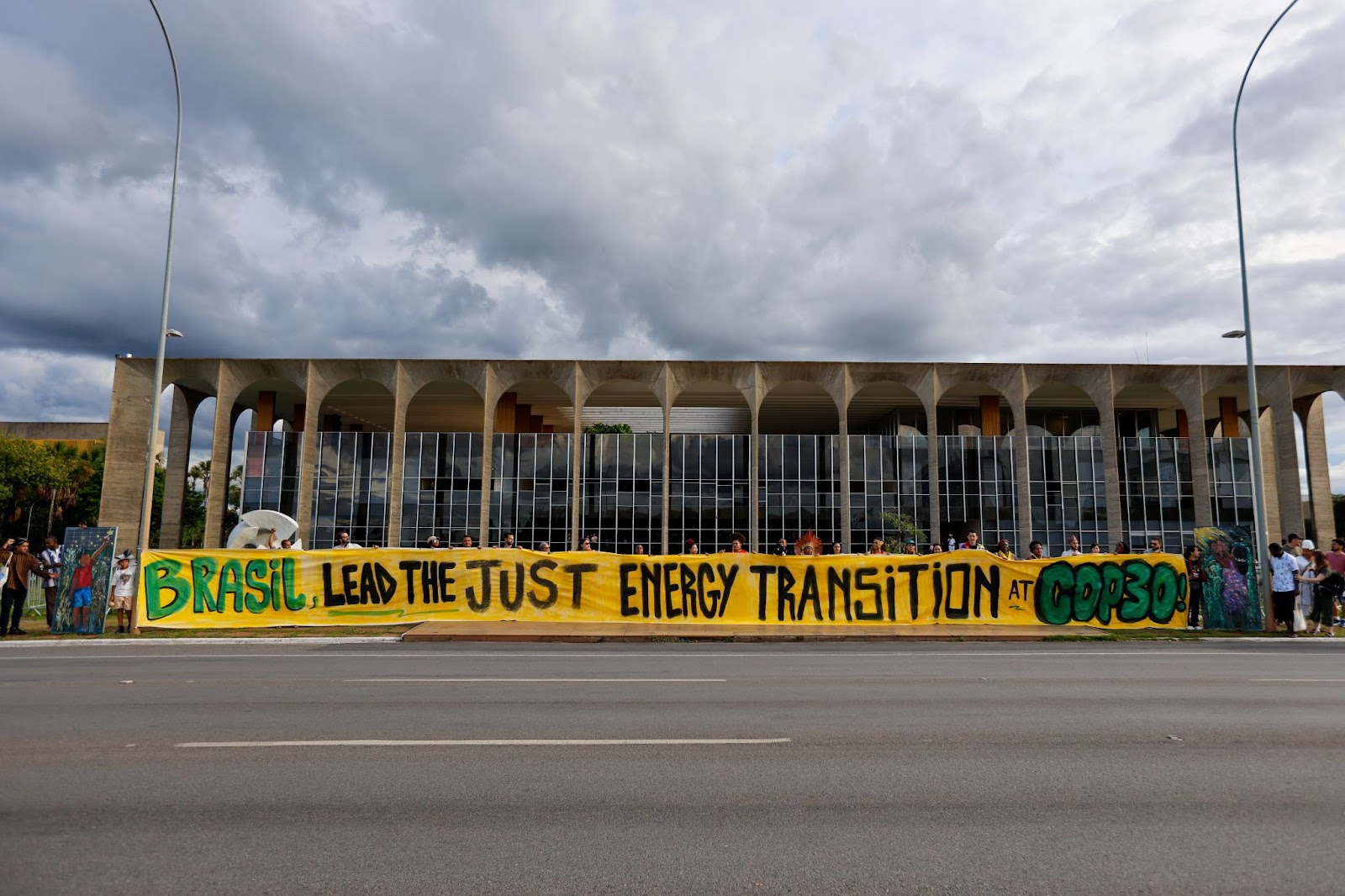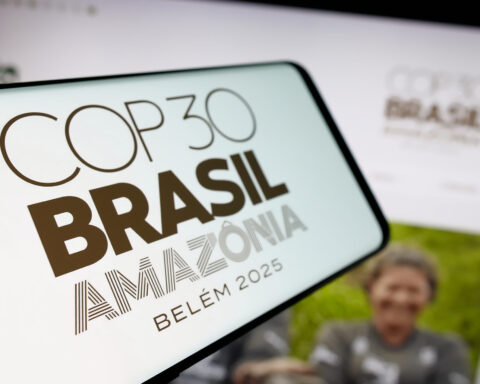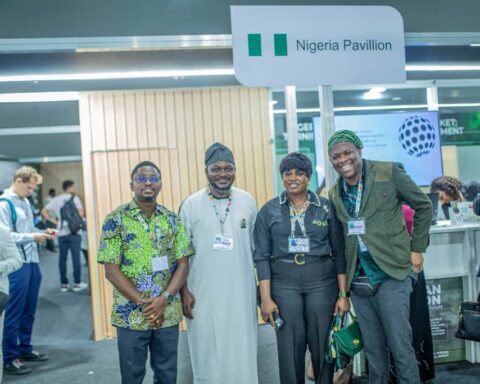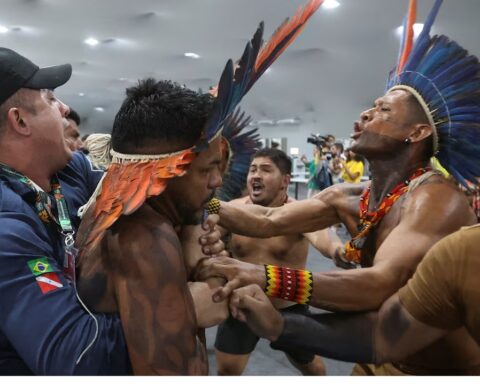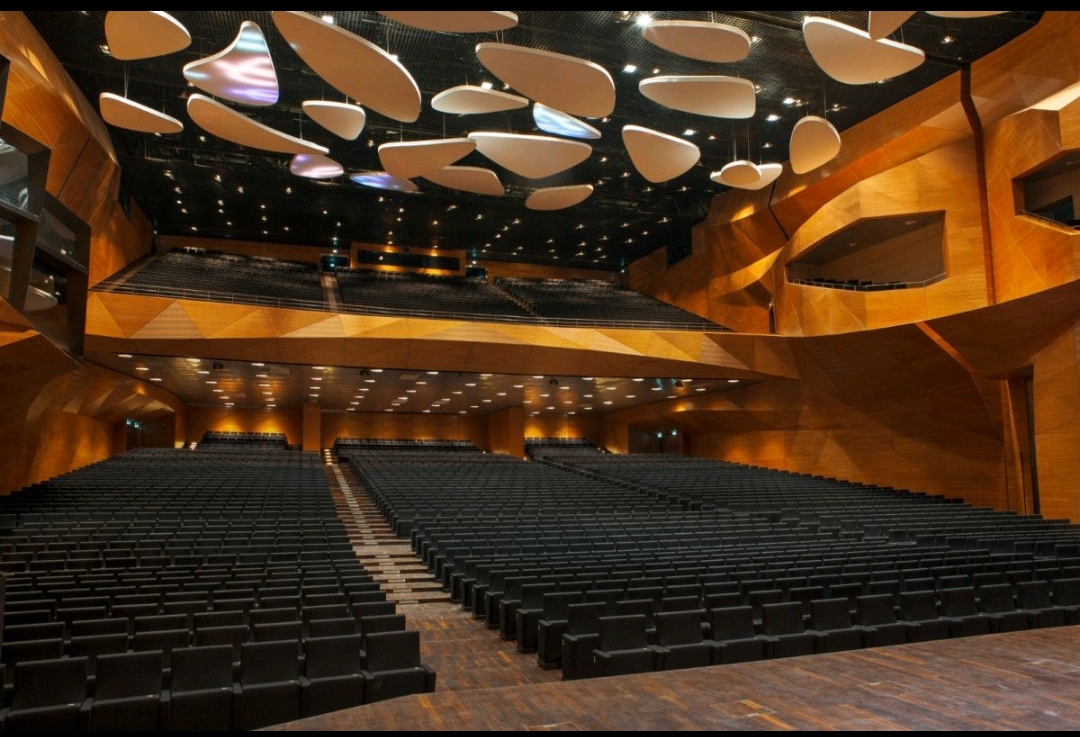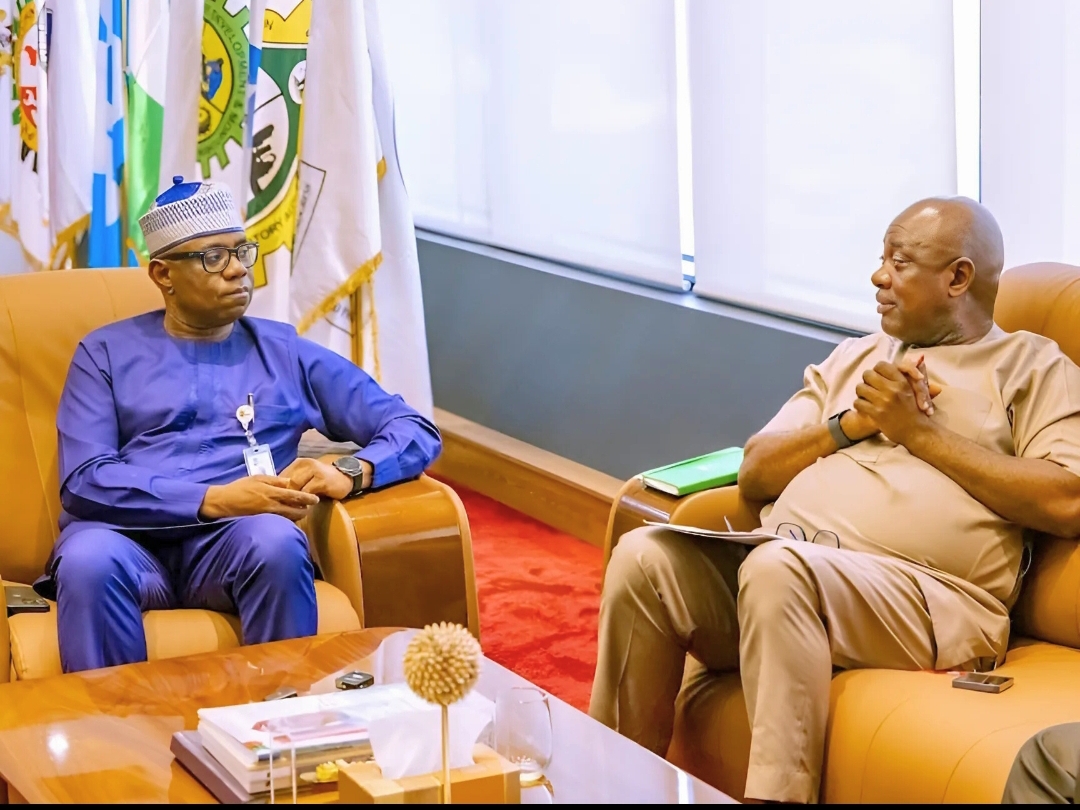Over 200 climate leaders from more than 70 countries, including Africa, have called on Brazil to demonstrate true climate leadership by ending fossil fuel expansion and prioritising a just and inclusive energy transition at COP30, which the country is set to host later this year in Belém, capital of the Amazonian state of Pará.
The demand was made during a protest in front of Brazil’s Ministry of Foreign Affairs in Brasília on Monday, where Indigenous leaders, climate activists, and community organisers unveiled a 30-foot banner made from ashes of Amazon wildfires. The banner, created by renowned Brazilian artist Mundano, read: “Brazil, lead the just energy transition at COP30.”
The demonstration was part of the “Renew Our Power” global climate gathering organised by 350.org, a climate activism organisation promoting community-led renewable energy solutions. The week-long event brought together civil society actors advocating a fossil-free future ahead of the United Nations climate summit later this year.
The action also followed the delivery of a letter to Brazil’s COP30 presidency during the recently concluded Free Land Camp (Acampamento Terra Livre), signed by more than 180 civil society organisations and thousands of individuals from 98 countries.
The petition calls for an end to fossil fuels, recognition of Indigenous leadership, and prioritisation of people-centred climate policies.
Speaking at the rally, Cacique Jonas Mura, an Indigenous leader from the Amazon, said it was contradictory for Brazil to present itself as a climate leader while expanding oil exploration.
“Instead of becoming one of the world’s biggest oil exporters, Brazil must lead the way out of the fossil fuel era,” Mr Mura said. “We Indigenous people are the guardians of the forest. Our lands must be respected and protected. As long as there is oil, there will be no real solution.”
Mundano, who led the artistic display, said the use of wildfire ashes in the protest banner symbolised the urgent need for climate action.
“Artivism is a language that reaches the soul when numbers and disasters fail to provoke change,” he said.
From Ghana, Portia Adu Mensah of the 350 Ghana Reducing Our Carbon (G-ROC) project, stressed the need for community access to renewable energy and a halt to fossil fuel projects like the controversial East Africa Crude Oil Pipeline.
“Communities at the frontline of the climate crisis deserve safe, reliable, and clean energy. We reject energy systems that destroy our environment and livelihoods,” she said.
Also speaking, Serena Mendizábal of Sacred Earth Canada, said new energy models must not replicate systems that exclude Indigenous communities.
“Indigenous wisdom is key to confronting the climate crisis. Their voices must not only be heard, but lead,” she said.
Savio Carvalho, 350.org’s Head of Regions, described Brazil’s role as COP30 host as a chance to walk the talk on climate promises.
“This is the moment for Brazil to show real leadership. It must implement its commitments to transition from fossil fuels and triple global renewable energy by 2030,” he said.
As the world looks to COP30, many civil society actors believe that grassroots voices, especially from the Global South, must shape the outcome of the summit if a truly just transition is to be achieved.
By Dare Akogun


